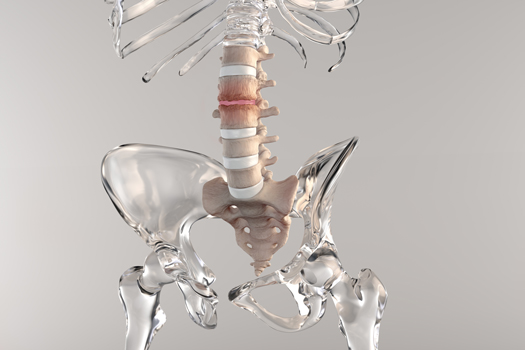
Some patients with herniated spinal discs may not even know their disc has herniated if symptoms are mild or moderate—or not present at all. Typically, herniated discs heal within a few weeks. However, there are times when a herniated spinal disc may last longer. As for how long a herniated spinal disc may last, this article answers this question below.
Herniated Disc Pain Is Usually Short-Lived
It is not unusual for patients to notice a slow and steady decline in the nature and severity of their symptoms while undergoing initial treatment. This includes home remedies such as getting some rest. However, you should not rest for too long, since too much rest is not beneficial for spinal muscles. In fact, many patients report no longer having any significant herniated disc pain after about 4–6 weeks—or even sooner, in some instances.
Herniated Disc Symptoms May Last Longer
The length of time a herniated disc can last is largely dependent on where the affected area is. For instance, if the disc is in the middle spine area, you may not have too much discomfort even if the affected disc remains herniated for a longer time.
On the other hand, if the problem disc is located in the lower back area, it is entirely possible to notice symptoms that stick around much longer. Additional factors that tend to determine how long herniated disc symptoms last include:
• Your normal level of activity
• Your overall health and wellbeing
• Whether or not you have any underlying health issues that could be a factor, such as diabetes
What you do for a living is another factor that determines how long a herniated disc can last. If you have a more physically demanding job, you are more likely to continue aggravating the same disc.
Diagnosis and Treatment Are Essential
If you believe the discomfort you are experiencing is related to a herniated disc and your symptoms have lasted longer than expected, see what your doctor has to say. You may also be referred to a spine specialist if initial testing is not conclusive. It is a good idea to take this step sooner rather than later if you are noticing any of the following issues:
• Pain that is getting more severe
• Symptoms that are potentially problematic (e.g., bowel and or bladder control issues)
• Discomfort that is making it more difficult to get through your day or sleep at night
Fortunately, most patients respond well to nonsurgical treatments for herniated spinal discs. However, if your discomfort has been lasting longer than 4–6 weeks, it is considered chronic. In this case, you may be a candidate for a microdiscectomy or a traditional discectomy. This is the procedure often performed to remove the disc material that is irritating a nearby nerve root. With a minimally invasive procedure such as this type of back surgery, recovery time is much shorter—although the results are still highly reliable.
If you have a herniated disc, a doctor may recommend a discectomy as the best option. Although this is generally one of the most successful back surgery procedures, having a large hole in the outer ring of your disc more than doubles the risk of needing another operation in the future. A new treatment, Barricaid, is a bone-anchored device that closes this hole, and it is proven 95 percent effective. This means 95 percent of Barricaid patients in a randomized study did not undergo a reoperation due to reherniation in a 2-year study timeframe. This treatment is done immediately following the discectomy—during the same operation—and does not require any additional incisions or time in the hospital.
If you have any questions about the Barricaid treatment, ask your doctor or contact us at 844-288-7474.
For full benefit/risk information, please visit: https://www.barricaid.com/instructions.


Comments